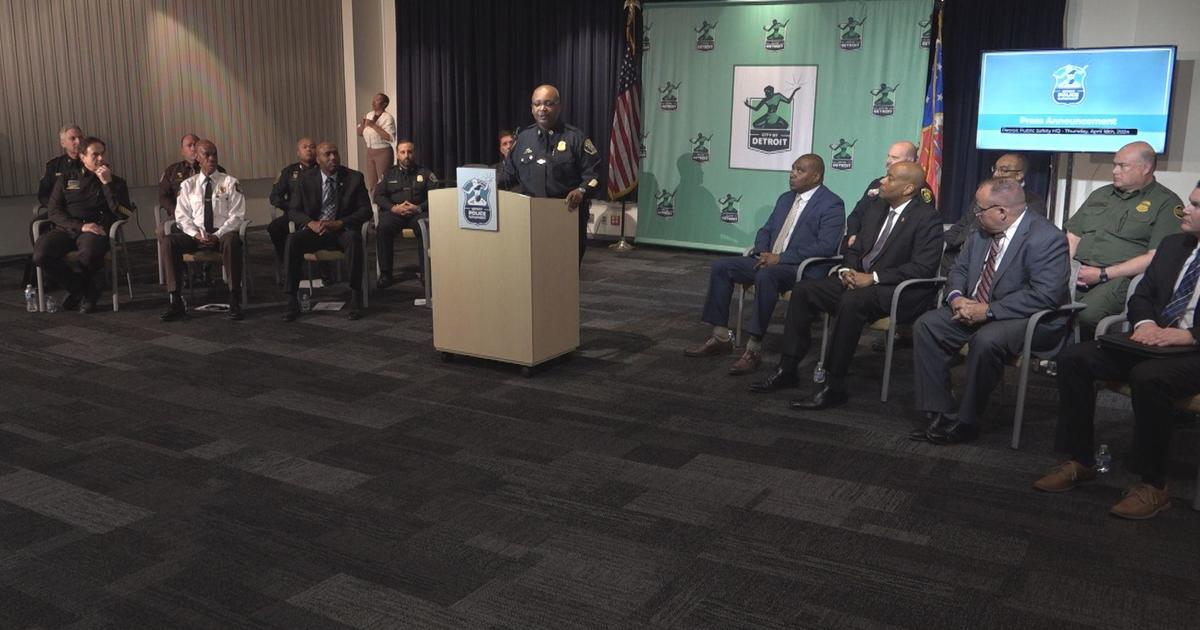Detroit Wins $16.2 Million For Health IT
Federal Health and Human Services Secretary Kathleen Sebelius announced that Cincinnati and Detroit are the two final pilot communities selected under the new Beacon Community Program that is using health information technology to help tackle leading health problems in communities across the country.
The Southeastern Michigan Health Association will receive $16.2 million over three years.
SEMHA and its partners in the Detroit area will use health IT tools and strategies to prevent and better manage diabetes, which today affects a large percentage of residents of the city of Detroit.
This community collaboration will combine existing and new technologies across health care settings to improve the availability of patient information at the point of care, regardless of where the patient is in the health system. The community will also provide practical support to physician practices to help clinicians, nurses, and others make the best use of electronic health data to catch potential health complications before they arise.
The city's clinical community will have the capacity to track clinical outcomes with the overarching goal of making long-term, sustainable improvements in the quality and efficiency of diabetes care in Detroit, Hamtramck, Highland Park, Dearborn and Dearborn Heights.
The Beacon program is one of several new programs created by the Health Information Technology Economic and Clinical Health Act last year. HITECH included $2 billion for technical assistance, training and demonstration programs supporting the adoption of heath information technology, including electronic health records (EHRs).
Total funding for the Beacon program initiatives is $250 million plus an additional $15 million for technical assistance and evaluation.
Beacon projects are expected to initially create dozens of new jobs in each of the communities paying an average of $70,000 per year for a total of over 1,100 jobs up-front, while accelerating development of a nationwide health IT infrastructure that will eventually employ tens of thousands of Americans.
"The Beacon program uses health information technology tools to link health providers and other community-wide resources in new and innovative ways," Sebelius said. "Under the Beacon program, communities first identify leading health problems that are unique to their community, develop innovative, health IT-related strategies, and work together through community collaborations to implement their strategies and track their performance."
The Beacon Community awards are part of an overall $100 billion federal government investment in science, innovation and technology through the federal stimulus to spur domestic job creation in emerging industries and create a long-term foundation for economic growth.
There has been significant interest in the program, with more than 100 applications for the final two Beacon program slots. David Blumenthal, M.D., national coordinator for Health Information Technology, said the applications demonstrated widespread readiness in communities across America to use health IT to address specific challenges in health and health care.
"Beacon communities are designed to point the way toward maximizing community resources to address specific health goals at the local level, including quality of care, the cost of care, and the health of the whole population," Blumenthal said. "We have seen first-hand through the Beacon application process that a great many communities have promising ideas and are starting to use health IT in innovative ways. We look forward to engaging and helping these communities through a broader nationwide effort."
In the near term, HHS' Office of the National Coordinator for Health IT will work closely with other federal partners and the private sector to identify and share promising health IT health care solutions among communities across America.
"Although we could only select two additional Beacon communities, we are incredibly impressed by the creativity and focus exhibited by communities over the course of this competition," Blumenthal. said "Local leadership is an essential ingredient to improving health care. The Beacon Community application process provides strong evidence that communities throughout the country are mobilizing for positive change, using health IT as a critical foundation for improving health care."
Other communities that previously received Beacon program funding include Tulsa, Okla.; Stoneville, Miss.; Brewer, Maine; Danville, Pa.; Salt Lake City, Utah; Indianapolis, Ind.; Spokane, Wash. New Orleans, La.; Rochester, Minn.; Providence, R.I.; Grand Junction, Colo.; Concord, N.C.; San Diego, Calif.; Hilo, Hawaii, and Buffalo, N.Y.
More about Beacon Communities at http://Healthit.hhs.gov/Programs/Beacon.
More about the Affordable Care Act and other efforts to promote improved care delivery at www.healthcare.gov.
And finally, more about other HHS Recovery Act programs at www.hhs.gov/recovery.



